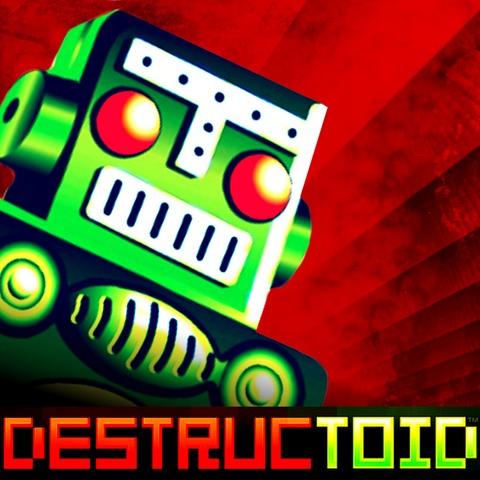BROOKE GLADSTONE: Once eyeballs correlated directly with dollars, but no more. Those were ad dollars and, as you’ll hear, that equation just doesn’t add up online. There, desire and need matter far more. Destructoid, a website about videogames, garners about 14 million page views a month, but its ad revenue in no way tracked with its growing user base or its bandwidth costs. Then Destructoid’s founder, Niero Gonzalez, discovered, to his dismay, that half of his tech savvy readers used adblockers. So he asked them, how do you want me to pay for this?
NIERO GONZALEZ: The people that got back to me said everything from, listen, advertising is broken, it's not my responsibility that this model doesn't work anymore. So no, I’m not gonna turn my adblocker off. My favorite group of people said, oh, I’m sorry, I won’t do that. And then there was a very small group that just said, hey, your site is gonna go away sooner or later, there's another video game site that I read. I don't care.
BROOKE GLADSTONE: You decided to overlay a message on your site explaining to those who blocked ads that it hurt writers; the overlay would disappear only when ad blocking people disabled their adblocker, and that, at least one writer, felt was an annoying incursion on their freedom.
NIERO GONZALEZ: [LAUGHS] Correct. I took a defensive tone. I said, this is hurting me, whereas other sites have been a lot more cheeky about it and said, hey, not cool, here’s a place where you can pay five bucks and we’ll never bother you again. The reader just basically said, I don't need a guilt trip. This is your problem, this is not my problem. I said, well, I think you're right. The way that I went about it wasn't perhaps the right tone.
BROOKE GLADSTONE: So you changed the red banner to blue [LAUGHS], right? And what else did you do?
NIERO GONZALEZ: We tried different messaging. Some were very dramatic and said, hey, I may not be able to pay my writers in two years, if, if this keeps going on. And then some of them were just like, hey, dude, ad blocking sucks, we want to survive, so don’t do that.
BROOKE GLADSTONE: What worked?
NIERO GONZALEZ: To be honest, none of the above. We saw less than 3% convert. This is 3% of the people that we were serving it to, not 3% of the 36 to 40% that were blocking the ads.
BROOKE GLADSTONE: You mentioned that there were sites that were being cheeky. One of them is the dating site OkCupid, who addressed the issue by putting up a banner that read, “Donate five dollars to us once and we remove all ads from the site forever.” What about that? Would you try it?
NIERO GONZALEZ: I think it’s cute, but it’s not a bulletproof solution. Ultimately, what readers are saying is advertising is not the way that we want to support your site. And there’s gonna be an adblocker that's gonna beat the ad that talks about ad blocking. You know, it’s, it’s – it’s an arms race. [LAUGHS]
So I think it's been a challenge publishers like me to kind of diversify what we offer the readers.
BROOKE GLADSTONE: Go on!
NIERO GONZALEZ: [LAUGHS] So there’s a couple of people that are doing interesting things in the space. The most public case is Andrew Sullivan's dish website. He completely railed against online advertising, said it was a bad way to run a, a publication and earnestly asked his readers to support him for – I think it was 19.99 a year. Small independent publishers are having to adopt a sort of model that newspapers have been testing, what he calls a leaky pay wall.
BROOKE GLADSTONE: Go on!
NIERO GONZALEZ: [LAUGHS] For the last seven years I’ve been giving away all of our content for free, and the reader expects the content to be for free. If I were to switch on a pay wall tomorrow, I would become the villain, right? That’s just not realistic. So I'm experimenting with sort of a hybrid approach. If we were to redesign the site to allow our patrons to have a Patrons Area that would have exclusive content that wasn’t there before, maybe that's a model that's more sustainable.
BROOKE GLADSTONE: It may just be you have to work harder and harder for fewer and fewer dollars, but isn't it fair that people who pay money, get more for it?
NIERO GONZALEZ: [LAUGHS] Well, I'm often criticized for complaining that my work as hard, as I review and play video games for a living, [LAUGHS]
[BROOKE LAUGHS]
- if we have to hustle a little more to keep our readers, I think that that's a fair deal.
BROOKE GLADSTONE: Do you notice any philosophical change in the user base, people who go, you know, I see that this free all-the-time thing might not be sustainable?
NIERO GONZALEZ: I would say that the role of 80/20 applies here; 20% of our readers definitely care but, to be honest with you, the majority of the readers are just, you know, there for the information. They’ll come and go onto the next free destination. So in adopting a freemium - or whatever you want to call it - hybrid approach - it does seem like we’re gonna end up working primarily for that passionate 20%.
BROOKE GLADSTONE: Niero, thank you very much.
NIERO GONZALEZ: Thank you.
BROOKE GLADSTONE: Niero Gonzales is the founder and publisher of Destructoid.
